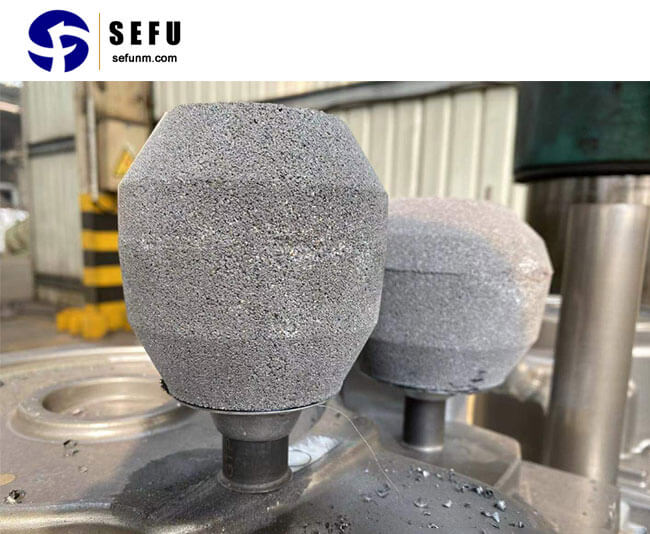Foundries are essential to various industries as they produce metal castings used in manufacturing different products. However, the production process in foundries can be challenging because of the high temperatures that are involved. Therefore, safety and efficiency in foundries are critical, and this is where exothermic riser sleeves come in handy. The use of exothermic riser sleeves has revolutionized the foundry industry by introducing a safe and efficient way of producing metal castings.
Exothermic riser sleeves are designed to keep molten metal hot for longer periods, allowing it to solidify quickly and reducing the likelihood of casting defects. The sleeves are made of high-quality materials that can withstand the extreme temperatures involved in the casting process. This reduces heat loss, meaning less energy is required to keep molten metal hot, which ultimately leads to significant cost savings. In this article, we will delve into the advantages of using riser sleeves in foundry operations.

Exothermic Riser Sleeves: Enhanced Efficiency
Foundry operations require a considerable amount of energy to heat the molds and the molten metal. Traditionally, foundries have been using sand molds to make their castings. Sand molds require high temperatures to melt the metal, and the heat radiates and dissipates into the environment if not insulated correctly. This results in the usage of more energy than necessary, leading to increased overhead costs.
However, with the introduction of exothermic riser sleeves, heat loss is minimized; hence, the foundry needs less energy to keep the molten metal hot. This is because the sleeve materials are designed to keep heat contained and prevent it from escaping into the environment. The insulation properties of these sleeves help maintain the heat in the molten metal for longer periods, allowing it to remain hot even when it is not in direct contact with the heat source.
The result of using riser sleeves is enhanced efficiency, which translates to higher productivity and reduced running costs. The foundry can produce more castings using less energy, saving the business money and time while minimizing its carbon footprint.
Exothermic Riser Sleeves: Improved Safety
Safety is a critical aspect of any foundry operation. Molten metal presents a significant safety hazard to workers. If not handled correctly, it can lead to serious injuries and, in some cases, fatalities. Traditional casting processes have more safety hazards than those using exothermic riser sleeves. Using these sleeves drastically reduces the risk of injuries in the foundry.
Exothermic riser sleeves are designed to act as a protective barrier between the workers and the molten metal. The sleeves are made of heat-resistant materials that can withstand high temperatures, protecting workers from contact with molten metal. The insulation property in the sleeves also helps in reducing the risk of burns and other heat-related injuries. Workers can handle the riser sleeve more safely and with less risk of injury while allowing the foundry to benefit from improved efficiency and productivity.
The use of riser sleeves also enhances the quality of the castings produced. The sleeves help in making sure that the molten metal temperature remains constant, reducing the probability of thermal shock. Thermal shock can cause cracks or distortions in the final product leading to costly rework, lost time, and raw materials.
Reduced Costs
Energy costs account for a significant portion of the overhead costs in foundries. Traditional casting processes require more energy to keep the molten metal hot, leading to higher bills. Exothermic riser sleeves reduce energy costs by minimizing heat loss from the molten metal, reducing the amount of energy needed to keep the metal hot.
The insulation properties of riser sleeves also reduce the need for additional heat sources, further reducing costs. Therefore, foundries that use exothermic riser sleeves can benefit from significantly lower energy bills and decreased overhead costs.
Additionally, using riser sleeves reduces the possibility of defective castings. The sleeves maintain the temperature of the molten metal, which means that casting defects due to thermal shock and porosity are significantly reduced. This leads to a reduction in the costs of rework, scrapped parts, and raw materials.
Conclusion
Exothermic insulation riser sleeves are a great innovation that has revolutionized foundry operations. They offer a safe, efficient, and cost-effective way of producing high-quality castings. The enhanced efficiency, improved safety, and reduced costs associated with using exothermic insulation riser sleeves make them a valuab


